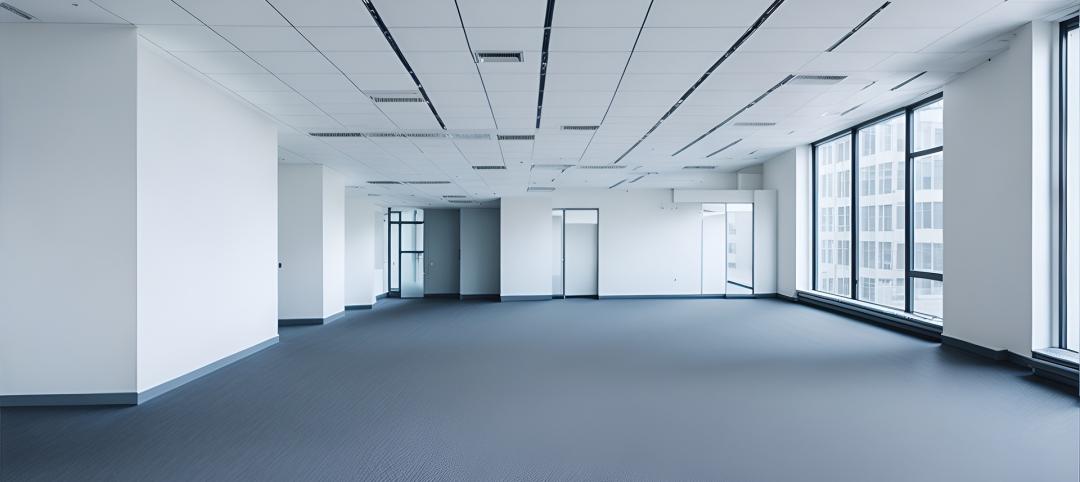2020 has been a peach, hasn’t it? A global pandemic. Raging wild fires. Riots and looting. Facemask battles. Ongoing trade wars. Election-year shenanigans. Recession fears. Increasingly divisive politics. Everything canceled. (Lest we forget zombie deer and murder hornets.)
In a year of jobsite shutdowns, project delays, funding pitfalls, and project postponements—and with no guarantee of a more prosperous 2021—it is understandable for AEC firm leaders to take a guarded, hunker-down stance when planning for next year and beyond. It is natural for firms to focus first on “right sizing” the business by slashing investments, overhead, and operational costs.
But these positions of passivity and cost-cutting run counter to the key lessons from AEC leaders who successfully navigated their firms through past market downturns and economic events, says Scott Winstead, President of FMI Management Consulting, who’s firm last year studied takeaways and strategic lessons from the Great Recession (BDCnetwork.com/DownturnLessons).
A common mistake AEC firms make during down cycles, says Winstead, is running the firm as a collection of projects, versus a business. “It’s a subtle but very distinctive difference that speaks to the long view versus the short view, and to the notion that you can’t save your way to prosperity,” says Winstead.
The firms that came out of the Great Recession in growth mode, according to the FMI research report, focused on investing in their clients, people, and business; they diversified their services and found unique ways to outperform the competition; they streamlined their operations and put their “A” players in a position to succeed and grow the business; and they created a company culture that is nimble, collaborative, and transparent.
Winstead says 2020-21 should be no different. “If I think back to 2008 and the beginning innings of the Great Recession, I heard then what we heard early on in this scenario, which is mistaking backlog as a proxy for health,” he says. “Backlog is a reflection of work that has already been sold and booked, and is in the process of being burned off. Past performance is no guarantee of future results.”
The key finding of the FMI research, which gathered insights from more than 150 engineering and construction executives, was that AEC leaders who increased their financial investment in strategy reported higher effectiveness in operations, strategy, and overall company performance, compared to respondents who either didn’t do anything or decreased spending in that area. “Strategic thinking and planning are among the top leadership skills needed to be an effective leader during a recession,” wrote the authors of the report.
Download the FMI report, “Leading Through Business Cycles: Lessons Learned From E&C Executives,” at: BDCnetwork.com/DownturnLessons.
Related Stories
Adaptive Reuse | Sep 12, 2024
White paper on office-to-residential conversions released by IAPMO
IAPMO has published a new white paper titled “Adaptive Reuse: Converting Offices to Multi-Residential Family,” a comprehensive analysis of addressing housing shortages through the conversion of office spaces into residential units.
Mixed-Use | Sep 10, 2024
Centennial Yards, a $5 billion mixed-use development in downtown Atlanta, tops out its first residential tower
Centennial Yards Company has topped out The Mitchell, the first residential tower of Centennial Yards, a $5 billion mixed-use development in downtown Atlanta. Construction of the apartment building is expected to be complete by the middle of next year, with first move-ins slated for summer 2025.
Healthcare Facilities | Sep 9, 2024
Exploring the cutting edge of neuroscience facility design
BWBR Communications Specialist Amanda Fisher shares the unique considerations and challenges of designing neuroscience facilities.
Office Buildings | Sep 6, 2024
Fact sheet outlines benefits, challenges of thermal energy storage for commercial buildings
A U.S. Dept. of Energy document discusses the benefits and challenges of thermal energy storage for commercial buildings. The document explains how the various types of thermal energy storage technologies work, where their installation is most beneficial, and some practical considerations around installations.
Office Buildings | Sep 5, 2024
Office space downsizing trend appears to be past peak
The office downsizing trend may be past its peak, according to a CBRE survey of 225 companies with offices in the U.S., Canada, and Latin America. Just 37% of companies plan to shrink their office space this year compared to 57% last year, the survey found.
University Buildings | Sep 4, 2024
UC San Diego’s new Multidisciplinary Life Sciences Building will support research and teaching in both health and biological sciences
The University of California San Diego has approved plans for a new Multidisciplinary Life Sciences Building, with construction starting this fall. The 200,000-sf, six-level facility will be the first building on the UC San Diego campus to bridge health science research with biological science research and teaching.
Codes and Standards | Sep 3, 2024
Atlanta aims to crack down on blighted properties with new tax
A new Atlanta law is intended to crack down on absentee landlords including commercial property owners and clean up neglected properties. The “Blight Tax” allows city officials to put levies on blighted property owners up to 25 times higher than current millage rates.
Resiliency | Sep 3, 2024
Phius introduces retrofit standard for more resilient buildings
Phius recently released, REVIVE 2024, a retrofit standard for more resilient buildings. The standard focuses on resilience against grid outages by ensuring structures remain habitable for at least a week during extreme weather events.
Construction Costs | Sep 2, 2024
Construction material decreases level out, but some increases are expected to continue for the balance Q3 2024
The Q3 2024 Quarterly Construction Insights Report from Gordian examines the numerous variables that influence material pricing, including geography, global events and commodity volatility. Gordian and subject matter experts examine fluctuations in costs, their likely causes, and offer predictions about where pricing is likely to go from here. Here is a sampling of the report’s contents.
Adaptive Reuse | Aug 29, 2024
More than 1.2 billion sf of office space have strong potential for residential conversion
More than 1.2 billion sf of U.S. office space—14.8% of the nation’s total—have strong potential for conversion to residential use, according to real estate software and services firm Yardi. Yardi’s new Conversion Feasibility Index scores office buildings on their suitability for multifamily conversion.

















